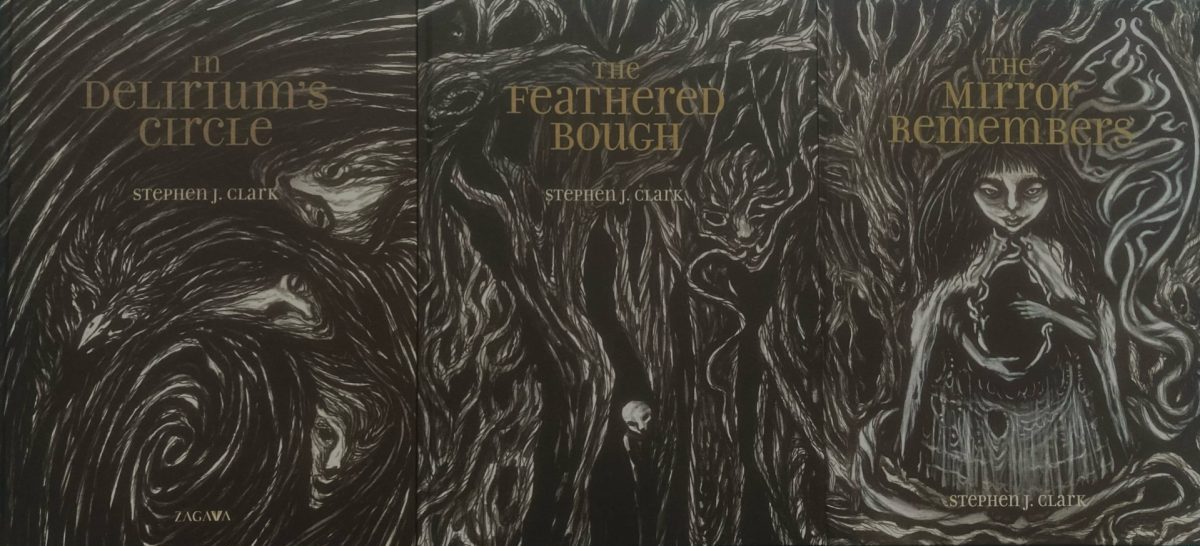I’m very pleased to announce that my latest novel The Feathered Bough has been reviewed by the acclaimed author Reggie Oliver in his regular column for Wormwood (Issue 32, Tartarus Press http://www.tartaruspress.com/wormwood.html);
“One who gets the balance between abandon and control triumphantly right is Stephen J. Clark in his novel The Feathered Bough. (…) Clark is perhaps as well-known as an illustrator and artist as he is as a writer and this book is an admirable collaboration of his two talents. Clark’s dark and sinuous designs do not so much illustrate as illuminate and elaborate his literary work: the two are seamlessly fused.

The story opens with Dr Rudkin, a therapist at the Colony Institute, studying a man who appears to think he is dead and has given himself the name of Gérard de Nerval. Whether he actually believes himself to be the suicidal poet maudit who kept a pet lobster is unclear: sadly, there is only a passing mention of crustacea in the story.
Nerval claims to have access to another world, a “paracosm” which he calls Hortus Palatinus, but also Featherbough. This world, of which we are allowed glimpses through Nerval’s accounts and illustrations, bears some relation to the Classical land of the dead. There is a Charon-like ferryman, a river of forgetting, and “the feathered bough” may well suggest the golden bough with which Virgil’s Aeneas gained access to the underworld. It is a place of “perpetual twilight.” But there are also other elements: some from Renaissance occult philosophy and alchemy, others more recent. A figure called Old Man Machen puts in an appearance; the presiding spirits are called the Great Rooks.
Rudkin is astonished by the richness and detail of Nerval’s world, as is the reader. Initially he sees it merely as a fantasy refuge into which his troubled patient can retreat from the horrors of reality; but he begins to believe that its description may be a way of leading Nerval out of his mental torment. Rudkin understands that “man can no more dispense with myth than he can with words.” But Nerval also has an agenda, and is luring Rudkin into his world by offering the prospect of an encounter with his dead wife.
Rudkin comes into conflict with Malfrey, the senior warden of the institution who is violently opposed to letting Nerval express his fantasy. He is for containment, suppression, and electric shocks. Though Malfrey is an unsympathetic figure, we come to see by the end that he may have a point. The conclusion is apocalyptic.
The Feathered Bough is an absorbing and richly imagined novel. Like all great stories it carries many interpretations and themes without insisting too heavily on any one of them. Zagava Press has produced Clark’s work beautifully and made of it a superb collector’s item and a very considerable work of art.”
Link to Zagava/ The Feathered Bough: http://www.zagava.de/?post_type=books&p=587
